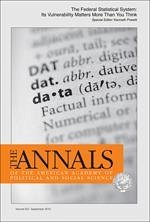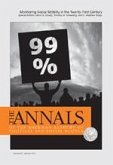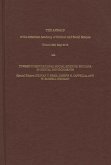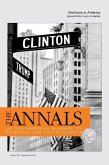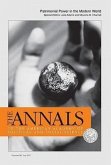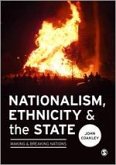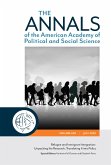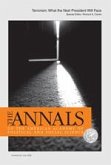How do federal statistics strengthen our nation's science as well as its policy? From demographers requiring vital statistics to economists relying on national accounts, from political scientists using voting data to sociologists requiring race/ethnicity statistics, from public health researchers needing epidemiology data to those working on the history of the United States and drawing on statistical records, the need for official statistics is great. And yet it is not widely recognized that federal statistics provide a vital contribution to the nation's scientific infrastructure, as well as serving as an information provider to the policy process. What is the role of the federal statistical system in our scientific knowledge of American society? Would the social knowledge relevant to public policies have reached current levels of maturity in the absence of public statistics? Except by the scientific community that actually uses them, federal statistical programs are typically not thought of in scientific terms but as adjuncts to important government functions. In this latest volume of The ANNALS, leading academics, along with key federal officials, including the president's science advisor, the chief statistician of the U.S., the director of the Office of Management and Budget (OMB), the presidents of the National Academies, and the director of the Census Bureau address the argument that the statistics that the federal statistical system produces should be understood as constituting a scientific infrastructure for the empirical social sciences. Further, they see the current federal statistical system as "the best hope for bringing strong science to bear on new data sources" and "the best place to navigate unforeseen challenges in preserving the independence of statistical information from political interference." This unique collection of essays conceptualizes the U.S. Federal Statistical System-its role, reach, achievements, and vulnerabilities. The authors explore challenging issues such as privacy and confidentiality protections, data quality, and maintaining representativeness. Their intriguing discussion also takes up: · the move from a census and survey data system to a system that increasingly incorporates administrative and digital data; · the nation's scientific leadership's role as advocates for statistical programs; · the problems with the scientific methodology-sample surveys-on which these statistics rest; and · strengthening the network of statistical agencies and programs. Recommendations are offered, ranging from how to better organize the system, how to protect statistics from political interference, how to strengthen their role in science and in the policy process, and how to prepare for the challenges of a "new information order." If federal statistics are the knowledge base from which policy problems and solutions emerge, it is imperative that we pay attention to the lessons they offer. Never before has this topic received this level of attention from such an array of contributors. A must read for all social scientists and policy-makers.
Hinweis: Dieser Artikel kann nur an eine deutsche Lieferadresse ausgeliefert werden.
Hinweis: Dieser Artikel kann nur an eine deutsche Lieferadresse ausgeliefert werden.

